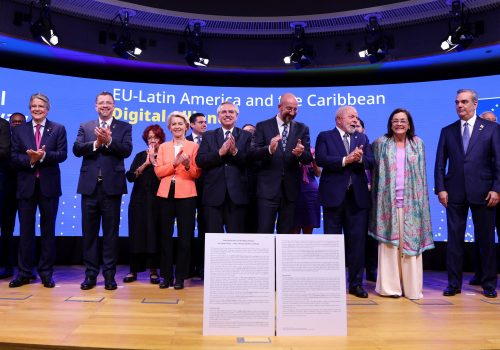Why Latin America and the Caribbean matter for OECD countries
As global dynamics evolve, Latin America and the Caribbean (LAC) are becoming increasingly important partners for the member countries of the Organisation for Economic Co-operation and Development (OECD). The region offers valuable assets, policy alignment in key areas, and opportunities for enhanced collaboration on shared challenges.
This report outlines how deeper OECD–LAC engagement can contribute to mutual prosperity, resilience, and global stability.
The region’s assets support global economic security
LAC countries contribute significantly to global food and energy security, climate action, and economic resilience. The region plays an important role in clean energy development, particularly through renewable energy and emerging green hydrogen projects. It is a major global supplier of critical minerals—such as lithium, copper, and nickel—essential for the clean energy transition. LAC’s agricultural output is also vital to meeting increasing global food demand. Furthermore, its rich biodiversity and freshwater resources are essential to addressing long-term environmental and climate-related challenges.
Latin America and the Caribbean are home to a high concentration of electoral democracies and market-oriented economies, which share many of the values and institutional frameworks upheld by OECD countries. These shared principles form the basis for long-term partnership. In multilateral forums, LAC countries have acted as constructive and pragmatic voices, helping to bridge perspectives between developed and developing countries.
However, as the region continues to navigate growing interest from global powers, particularly through increased trade and investment from China, there is a clear call for OECD countries to reaffirm and deepen their engagement.
Key recommendations:
- Build resilient and responsible critical mineral supply chains by formalizing an OECD–LAC Critical Minerals Partnership that promotes investment, technology transfer, Environmental, Social, and Governance (ESG) standards, and infrastructure development to support sustainable mining and industrial upgrading across the region.
- Enhance global food security through targeted cooperation in agritech innovation, rural infrastructure, and trade logistics. Strategic investment in transport corridors, cold chains, and climate-smart agriculture can boost productivity and resilience in LAC’s agricultural sector, benefitting global markets.
- Strengthen global value-chain resilience by leveraging LAC’s trade agreements and geographic proximity to OECD markets. A dedicated OECD–LAC Value Chain Initiative could identify areas of comparative advantage, streamline regulations, and support industrial diversification in key sectors.
View the full report
Related content
Explore the program

The Adrienne Arsht Latin America Center broadens understanding of regional transformations and delivers constructive, results-oriented solutions to inform how the public and private sectors can advance hemispheric prosperity.


